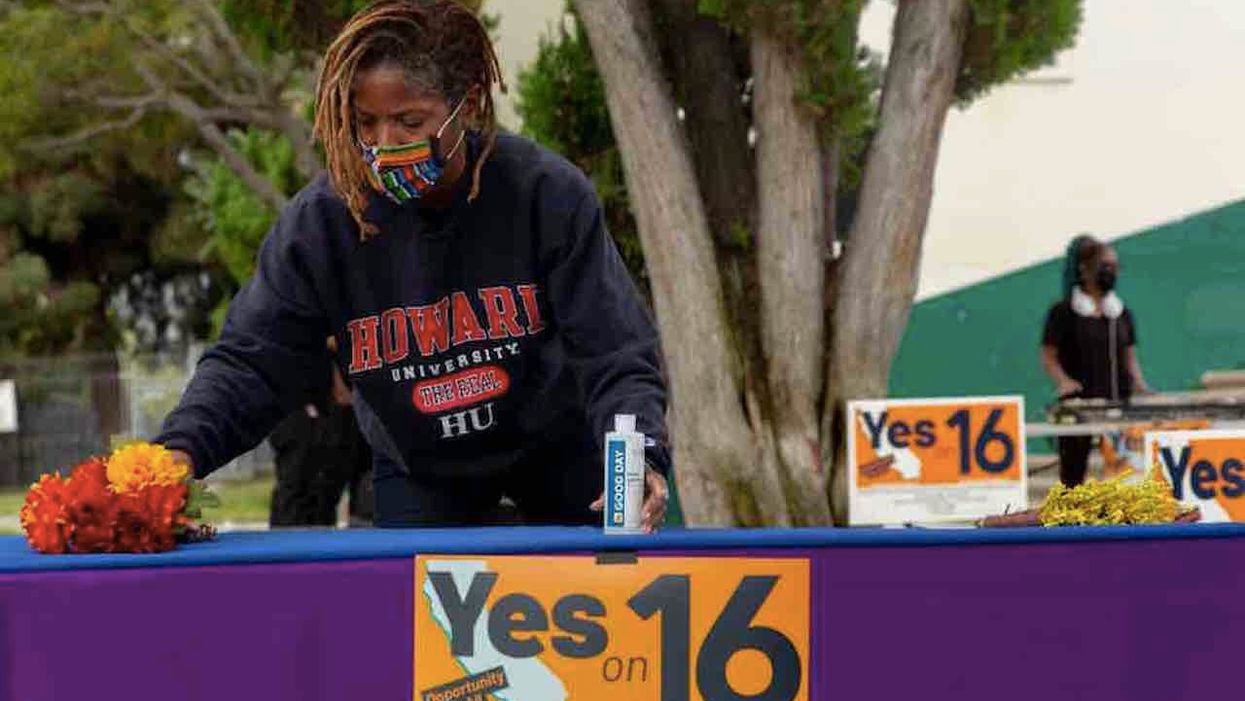
Allison Zaucha for The Washington Post via Getty Images

'It's unfortunate that we didn't have a chance to explain it to more voters,' a proponent of Proposition 16 said.
It might be hard to fathom in California — where close to half (46.3%) of all registered voters are Democrats as opposed to just 24% of voters registered as Republicans — but voters on Election Day rejected affirmative action, the Fresno Bee reported.
Proposition 16 — which aimed to repeal Proposition 209, a 1996 ban on considering race and gender in public hiring, college admissions, and contracting — was soundly defeated: It was failing 56% to 44% as votes were still being counted, the paper said.
Proposition 209 barred the state from discriminating against or granting preferential treatment to any person or group based on race, sex, ethnicity, or nationality, the Bee noted.
And it isn't as though the "Yes on 16" campaign was short on cash. The paper — citing campaign finance records — said the campaign raised more than $16 million between January and October while the "Californians for Equal Rights, No on Proposition 16" campaign raised a comparatively paltry $1.5 million.
Arnold Steinberg, a strategist with the "No" campaign, declared victory Tuesday night, the Bee said.
"We faced a daunting uphill battle against an initiative put on the ballot at the last minute by the state Legislature," Steinberg, who worked as a Proposition 209 strategist, told the paper. "In a state hardly seen as conservative, voters rejected a repeal of the state constitution's guarantee of equal treatment by race."
Lawmakers and advocates told the Bee public opinion groundwork was insufficient to win over hearts and minds for Proposition 16, particularly on a ballot dominated by the presidential election.
Assemblywoman Lorena Gonzalez and state Sen. Maria Elena Durazo, both Democrats, argued
Proposition 16 would create equal footing among Latinos and blacks and increase racial and gender representation in higher education and in the public workforce, the paper said.
"It's unfortunate that we didn't have a chance to explain it to more voters, but we're hopeful that justice works out," Gonzalez said on Tuesday night, the Bee reported.
More from the paper:
Former University of California Regent Ward Connerly, the lead advocate for Proposition 209, helped lead the campaign against the effort to overturn it.
He and other opponents called Proposition 16 divisive and discriminatory and argued that diverse communities in California have already made strides in representation since its ban.
In July, for instance, the University of California system announced a record number of incoming Latino freshmen admitted to the fall 2020 semester, surpassing Asian American students for the first time.